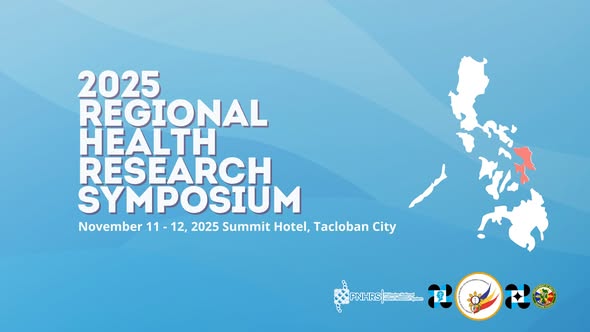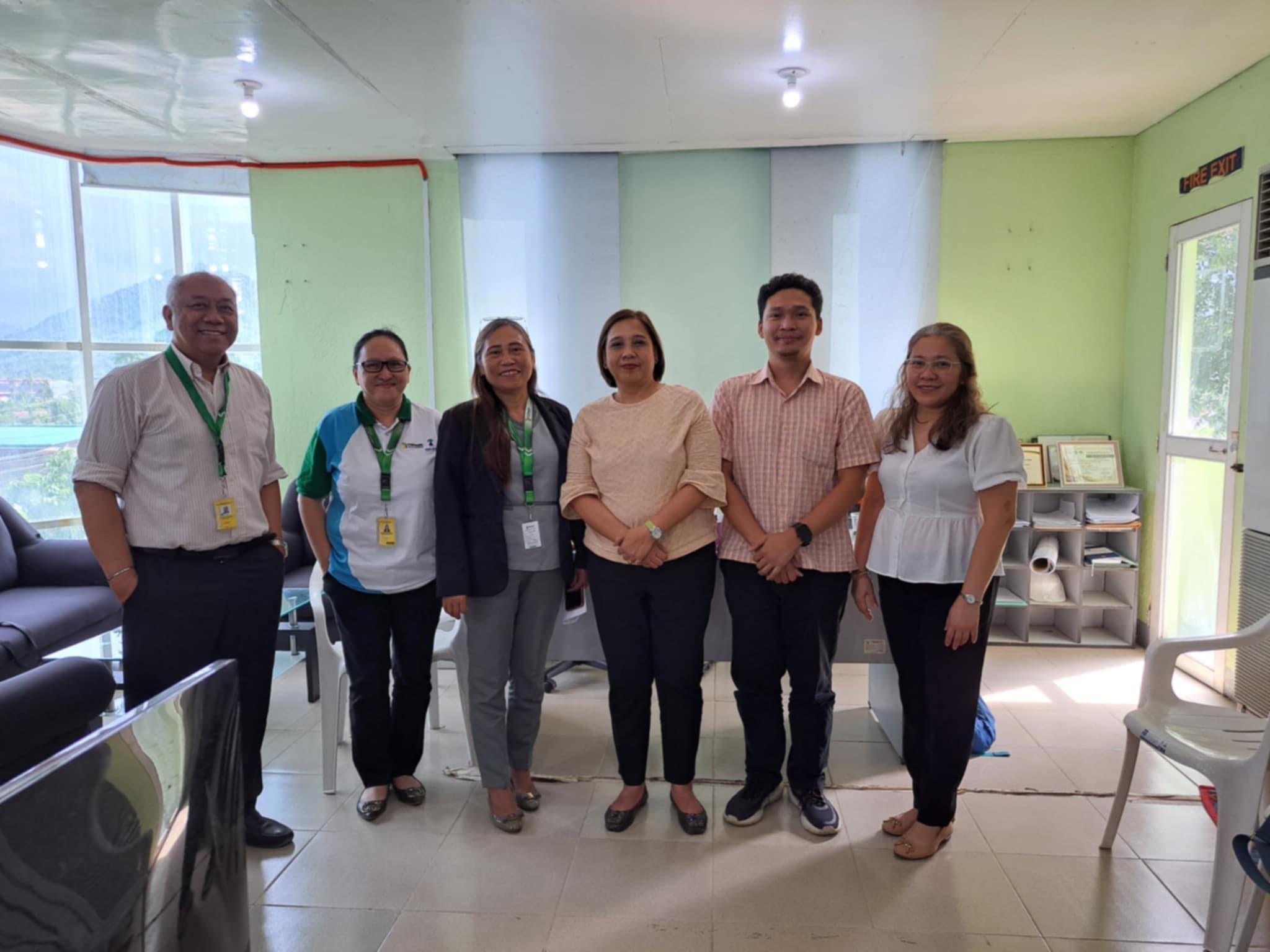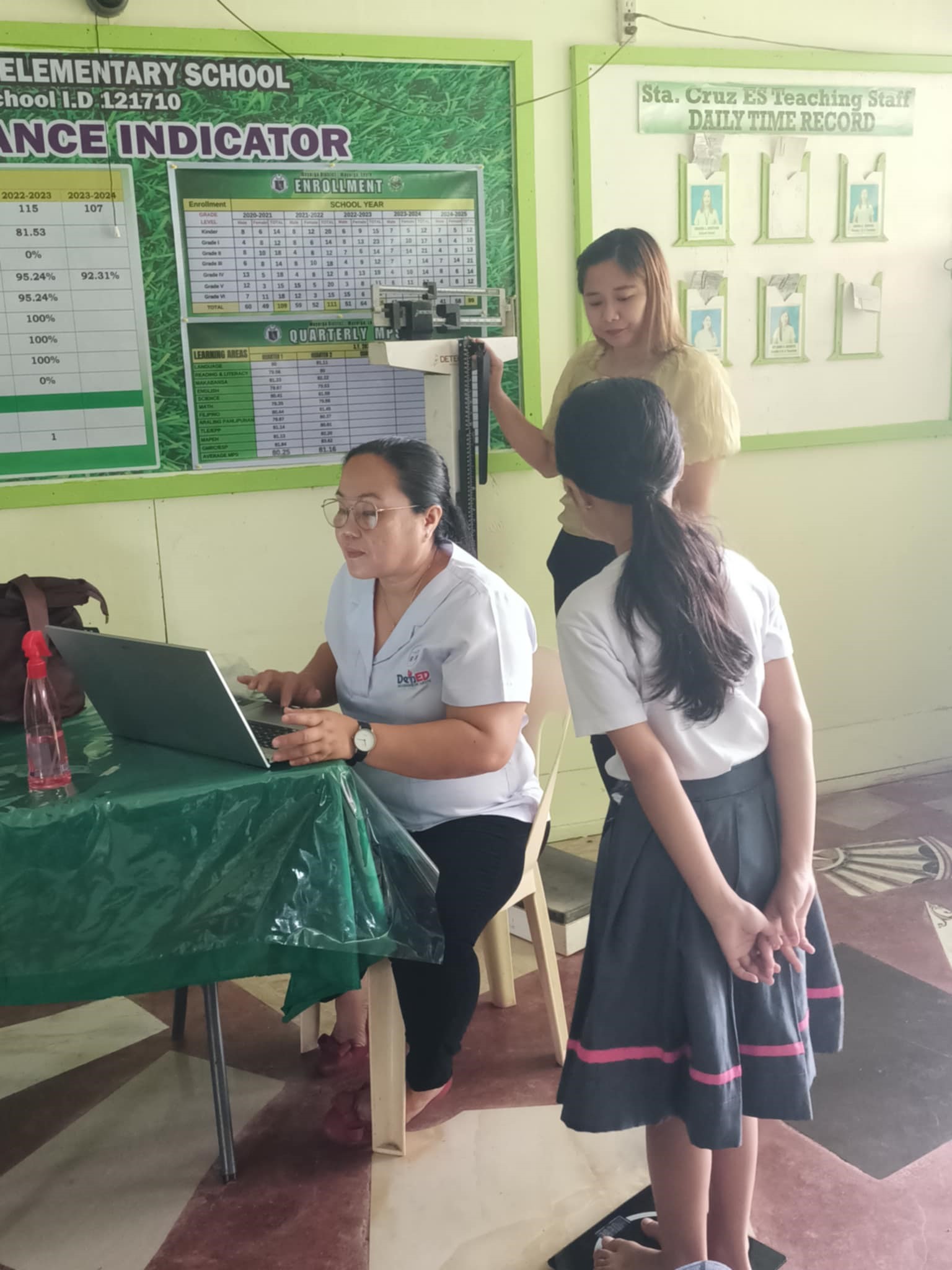Featured Videos
Latest News
- Details
- Written by Vincent Jay Bato, DOST VIII - EVHRDC
- Category: Latest News
- Hits: 304
The Capacity Building Committee (CBC) of the Eastern Visayas Health Research and Development Consortium (EVHRDC), in collaboration with the Research Management Committee (RMC), successfully conducted the Training-Workshop on Biotechnology and Biomedical Research on October 22–24, 2025, at Hotel Alejandro, Tacloban City.
The three-day training-workshop aimed to build and strengthen the competencies of health researchers, medical practitioners, faculty members, and research coordinators in developing and implementing high-quality research proposals in the fields of biotechnology and biomedical sciences.

In her Opening Message, Dr. Analyn C. Españo, Chairperson of the CBC-EVHRDC, warmly welcomed the participants and emphasized the importance of the training-workshop as a strategic initiative to advance the region’s health research capabilities.



Distinguished resource speakers — Dr. EA Kristine Clarisse Tulin, the emerging Filipino Scientist, making significant contributions to the fields of biochemistry, glycobiology, and biomedical sciences, Ms. Mikhaela Bargamento, Research Assistant at Nagasaki University, Japan, and Ms. April Joy Vergara, Research Assistant at the Department of Biotechnology, Visayas State University (VSU) shares their expertise on key topics such as biotechnology concepts, biomedical research design, proposal writing, ethical, and biosafety considerations in health research.



Participants from hospitals, higher education institutions, and partner organizations across Eastern Visayas engage in interactive sessions, group workshops, and research proposal presentations, allowing them to apply their learning and collaborate with peers in a dynamic research environment.




The three-day training-workshop fosters a culture of innovation, collaboration, and scientific excellence, reflecting EVHRDC’s ongoing commitment to enhancing regional research capacity and promoting health research initiatives that contribute to both regional and national development goals.


In line with this initiative, EVHRDC is opening its Call for Proposals for Biotechnology and Biomedical Research starting today, October 27, 2025, until November 27, 2025. Interested researchers are encouraged to visit the EVHRDC website and official Facebook page for details on the call and submission guidelines.
- Details
- Written by Vincent Jay Bato, DOST VIII - EVHRDC
- Category: Latest News
- Hits: 186


- Details
- Written by Vincent Jay Bato, DOST VIII - EVHRDC
- Category: Latest News
- Hits: 603

🌿 Still need funding for your undergrad thesis? You’re in luck—applications are now open!
If you're doing your undergrad thesis on natural products from plants or microorganisms indigenous to the Philippines, you can get funding support through the DOST-PCHRD Undergraduate Thesis Grant in Natural Products.
✅ Open to all undergrad students of Pharmacy, Chemistry, Nursing, and Health and Allied Sciences
✅ Boost your research with financial support of up to Php 75,000
✅ Be part of a growing community in natural products research
📌Apply through your Regional Health Research and Development Consortium (RHRDC).
📎 Full guidelines, requirements, and RHRDC directory here: bit.ly/2025-2ndCall_NatProdGrant
Tag a classmate who needs to see this! 👀👇
#2025NatProdGrant #healthresearchph
- Details
- Written by Vincent Jay Bato, DOST VIII - EVHRDC
- Category: Latest News
- Hits: 168
VIP Act signed, DOST to lead institute on virology research

President Ferdinand Marcos Jr. signed into law the Virology and Vaccine Institute of the Philippines (VIP) Act on September 12, 2025, officially designating the VIP as the country’s premier national institute for virology research and vaccine development under the Department of Science and Technology (DOST). The initiative, led by the DOST, aims to bolster the nation’s public health defenses and strengthen preparedness for future disease outbreaks. Read more
DOST Scholar Wins International Thesis Award for Breakthrough in Genetic Screening

Department of Science and Technology – Philippine Council for Health Research and Development (DOST-PCHRD) Master of Science in Tropical Medicine scholar-graduate, Ms. Beatriz Aira C. Jacob was awarded the Innovative Thesis Award. Read more
DOST-PCHRD at the Helm: Advancing Filipino Health through Research and Innovation

The Department of Science and Technology – Philippine Council for Health Research and Development (DOST-PCHRD) reaffirmed its leadership in driving national health research priorities during the Human Well-being breakout session of the 8th National Research and Development Conference... Read more
Advancing Food and Nutrition Security through R&D Initiatives

The second part of the 8th National Research and Development Conference (NRDC) Human Well-being breakout session showcased three Philippine Council for Health Research and Development (PCHRD) supported DOST – Food and Nutrition Research Institute (DOST-FNRI) projects focused on nutrition data tools... Read more
Filipino researchers forge partnerships with international neuroscience communities

Researchers from the Behavioral Neuroscience Laboratory, National Institutes of Health – University of the Philippines Manila (UP-NIH), participated in the 2025 Japan Society for Neuroscience (JNS) conference held in Niigata, Japan from July 24 to 27, 2025... Read more

DOST-PCHRD Undergraduate Thesis Grant in Natural Products

The Department of Science and Technology – Philippine Council for and Development (DOST-PCHRD) Undergraduate Thesis Grant in Natural Products provides fund support to all undergraduate students who will conduct their thesis on natural products from plants and microorganisms.

DOST-PCHRD welcomes 3 new MSc in Tropical Medicine scholars!
The Department of Science and Technology - Philippine Council for Health Research and Development (DOST-PCHRD), in partnership with the Faculty of Tropical Medicine, Mahidol University - SEAMEO TROPMED Thailand, proudly welcomes three new scholars, Mr. John Cedrick B. Canada, Ms. Laurence Anne P. Cabaltea, and Dr. Adrian Ronald A. Espino, under the 2025 Foreign Graduate Scholarship (FGS) Program - Master of Science in Tropical Medicine.
- Details
- Written by Elkanah Gaspang, Technical Assistant II/LTCCH-LRPO, DepEd RO VIII
- Category: Latest News
- Hits: 290
One’s health, as many studies have shown, is best understood as a multifaceted outcome from different yet interdependent variables. In education, health-related barriers such as malnutrition, preventable diseases, and unhealthy behavior and environment, among many others, have persistently undermined academic performance and the education experience of learners across the country. Through the OK sa DepEd (OKD) Flagship Programs, the Department of Education (DepEd) has continuously strived to ensure the health and well-being of learners. These include the School Mental Health Program (SHMP), School-Based Feeding Program (SBFP), Medical, Dental, and Nursing Services (MDNS), National Drug Education Program (NDEP), Wash in Schools (WINS), and the Adolescent Reproductive Health Program (ARHP). These programs ensure that learners have access to basic health care services and are taught healthy behaviors to achieve better learning outcomes.

Meeting with PhilHealth Regional Office VIII and DepEd RO VIII Medical Officer and Technical Assistant I
With the start of the new school year 2025-2026, DepEd has only strengthened this effort through the conduct of Mandatory Learner Health Assessment (LHAS) and the registration of learners in the National Health Insurance Program (NHIP) as mandated in the Department Memorandum No. 50, s. 2025. A Memorandum of Understanding (MOU) has also been forged between DepEd and the Philippine Health Insurance Corporation to bolster health protection of Filipino learners registered in public schools. These actions seek to improve the health coverage of learners from basic to a more comprehensive health coverage. By reducing financial burden through the insurance program and being an accredited school clinics, DepEd hopes to encourage proactive health behavior in learners and parents through affordable and accessible quality health services.

Learner Health Assessment by SDO Leyte Nurse








